¶ Music from The Balkans: Serbia – Bulgaria – Greece …
•→Divna Ljubojevic & Melody u Kijevu [Byzantine Orthodox music]⇐
«Divna» means «wonderful» in English… Her voice certainly lives up to her name!
•→Divna Ljubojević & Hor «Melodi» Pashalni koncert⇐
The Serbian diva with her choir of four male voices: MELODI⇒ Viktor Ljujie, Sasa Damnjanovic, Zoran Tesic . . . plus Tatjana Ristic.
They gave us an unforgettable performance at Carmen Church (Jaca) on 14th August 2009 …
♦ Aksion esti ↓
♦ Stihire pashe ↓
♦ Hristos Anesti ↓
÷ ÷ ∇ ÷ ÷
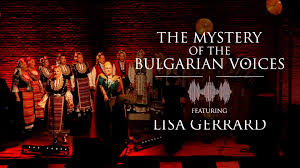 [from Potocka‘s 1993 film ↓ «A Bird Is Singing»]
[from Potocka‘s 1993 film ↓ «A Bird Is Singing»]
– lyrics translated ↓
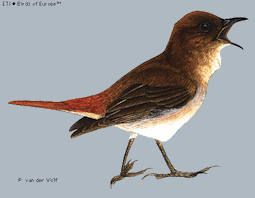
Dragana sits in the garden near the white rose-bush, singing softly to herself. The nightingale hears her and challenges her to a singing contest: ”I will sing, and try to outsing you. If you outsing me you may cut off my wings. But if I outsing you, I will cut off your hair.”
Dragana outsings the nightingale, who pleads with her, “Please cut off my feet instead, do not cut off my wings, for I have a little family!”
“Oh, nightingale,” says Dragana, “keep your wings and fly home to your family. It is enough just to have outsung the nightingale.”
♦ The Mystery Of Bulgarian Voices – Stevka Sabotinova ↓ Prituri se Planinata
1668. The jihad is in its heat in the Southeastern Europe. A corps of Janissaries is commissioned to the Rhodope Mountains under the command of Karaibrahim. A Bulgarian Christian region is selected by the Ottoman rulers to serve as an example of conversion to Islam. A Janissary who was kidnapped from the village as a boy now serving the Ottoman sultan is sent to force the reluctant inhabitants to convert. The Bulgarian christians have to chose between physical annihilation and losing their spiritual identity. Ultimately torture, violence, and rebellion break out. The film, Vreme Razdelno (‘Time of Vilolence’), is based on real events and the novel «Time of Parting» (Vreme Razdelno) by Anton Donchev.
‘Ergen Daido‘ + ‘Polegnala E Todora’ + ‘Oh Susanna‘ ↑
÷ ÷ ÷ ÷ ÷ ÷
Ederlezi is the Romani name for the Bulgarian, Macedonian and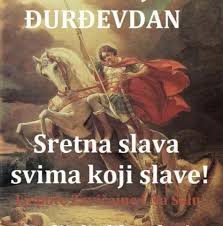 Serbian Feast of Saint George. It takes place on 6 May (occurring approximately 40 days after the spring equinox), just the same as the Turkish Hıdırellez, a holiday signaling the beginning of Spring.
Serbian Feast of Saint George. It takes place on 6 May (occurring approximately 40 days after the spring equinox), just the same as the Turkish Hıdırellez, a holiday signaling the beginning of Spring.
Goran Bregović‘s version titled «Ederlezi (Scena Djurdjevdana Na Rijeci)» was used in Emir Kusturica‘s movie Time of the Gypsies, which made the song famous. It was performed by the Macedonian singer Vaska Jankovska, whose unique voice contributed to its success.
The text in brackets in Serbian means: «The scene of Đurđevdan on the river», a description of a Đurđevdan celebration on a river in the movie Time of the Gypsies where that song was used.
Sa me amala oro khelena – Oro khelena, dive kerena Sa o Roma daje – Sa o Roma babo babo . . . Ederlezi, Ederlezi – Sa o Roma daje Sa o Roma babo, e bakren chinen – A me, chorro, dural vesava Romano dive, amaro dive – Amaro dive, Ederlezi E devado babo, amenge bakro Sa o Roma babo, e bakren chinen Sa o Roma babo babo – Sa o Roma o daje Sa o Roma babo babo – Ederlezi, Ederlezi – Sa o Roma daje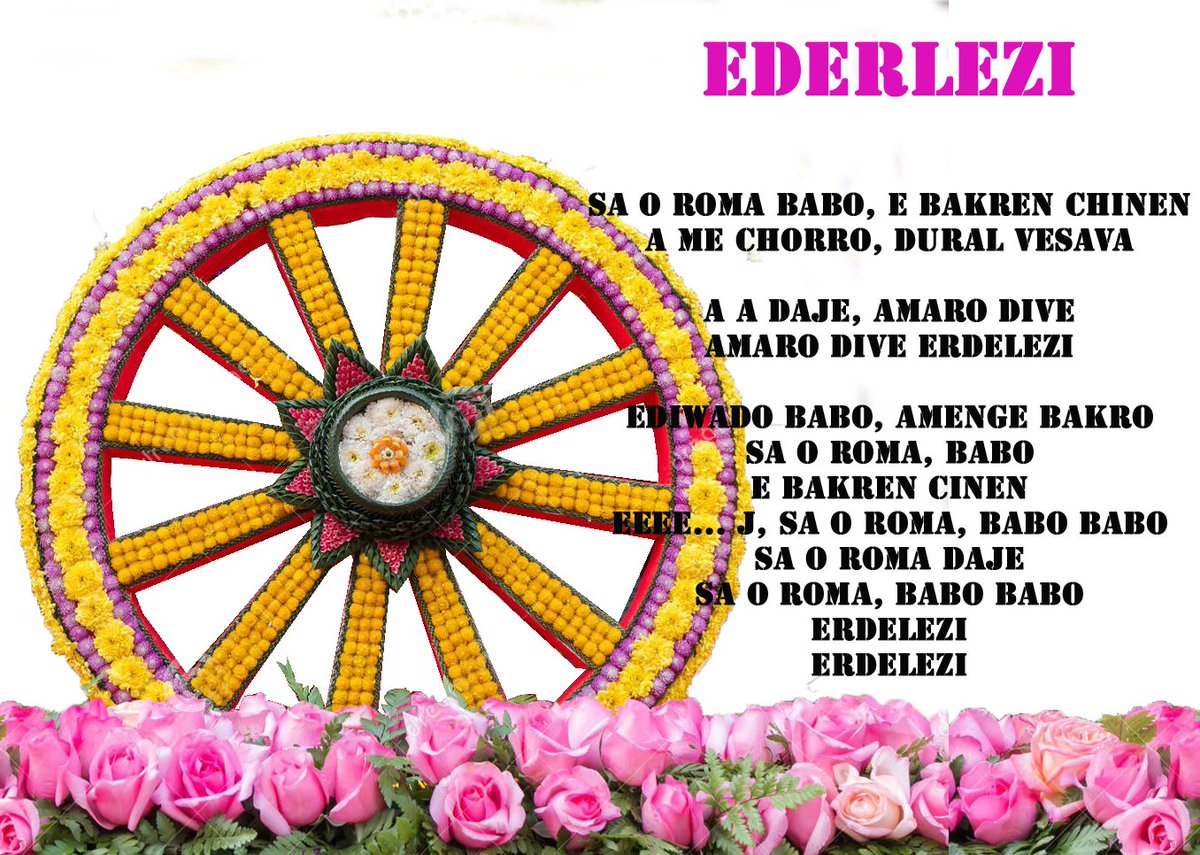
¤ Saint George’s Day (translation)
All the Roma, Mother are sacrificing lambs … We are poor … I live far away … All the Roma, Mother… Our holiday … Hederlezi … All the Roma, Mother All the Roma are singing – All the Roma are dancing – They are sacrificing lambs… All the Roma, Father – All the Roma, oh Mother – All the Roma, Father – Hederlezi, Hederlezi . . .÷ ÷ ÷ ÷ ÷ ÷
♥ Νίκος Κυπουργός ⇓ ‘Rom’ ~ ‘Ρόμ’
Slowly, love – makes a hole, pierces like a sword
quickly it flows in the glance in the blood in the kiss
And even if a person locks his mind in a castle which has never been visited, with double locks
with light footsteps his love, like the spring draws near
Slowly, love – makes a hole, pierces like a sword
quickly it flows in the glance in the blood in the kiss
And even if you wear a shirt which to the neck, to the neck buttons,
from between the buttons – eros, eros makes a hole
– English translation ↑
«Ρόμ σο σουκάρ σο σουκάρ ντε πενέντουκε ρομ μέι κολάι του τε αβές μέι ντζανάβ,
μέι ντζανάβ, μέι ντζανάβ, σο κα κερντιάν μέι ντζανάβ,μέι ντζανάβ, μέι ντζανάβ
Ρόμ σο σουκάρ, σο σουκάρ σάσμε τέ αβάβ μέι μπούτ μαγκάβα στέι αβάβ
μέι ντζανάβ, μέι ντζανάβ, μέι ντζανάβ, σο ασή ο Ρόμ»
÷ ÷ ÷ ÷ ÷ ÷
∞ Μελίνα Κανά [Melina Kana] & Βασίλης Παϊτέρης [Vassilis Palteris] ↓ Σε ήξερα (‘I knew you’)
Είπα θα πεθάνω μόλις σε είδα, αν είσαι όπως δείχνεις δεν έχω ελπίδα, πες μου ποια φωτιά σ’ έστειλε στην πλάση, και ποιος θα σ’ ανοί ξει να σε διαβάσει. Ψωμί κι αλάτι μου λείπει κάτι κορμί γραμμένο σε περιμένω. Άστρο στη ζωή μου, δέντρο στην αυλή μου, σε ήξερα, πριν σε δω, σε ήξερα. Μόλις το φουστάνι σου μ’ αγγί ζει, με κρασί η σκέψη μου γεμί ζει κι όταν στο ρυθμό χτυπάς το πόδι, σπάζει η καρδούλα μου σαν ρόδι. Ψωμί κι αλάτι μου λείπει κάτι κορμί γραμμένο σε περιμένω. Άστρο στη ζωή μου, δέντρο στην αυλή μου, σε ήξερα, πριν σε δω, σε ήξερα.ο «El anillo (chibuli)» ⇓ [Juan Peña El Lebrijano]
Se te cayó un anillo dentro de un pozo.
Y sé que quién lo encuentre será tu novio
Son cinco los que han ido, ninguno ha vuelto
Por mucho que tu llores yo seré el sexto
Yo seré el Sexto, yo seré el Sexto, yo seré el sexto …
Chibuli, chibuli habibi . . .
Una tarde de invierno, llueve que llueve
Me refugié contigo bajo tu puente
Me diste allí la mano dentro del río
Y luego la sacaste con el anillo
Con el anillo, con el anillo, con el anillo . . .
Chibuli, chibuli habibi . . .
Las niñas a la rueda se dan la mano
Y mientras dan la vuelta dicen cantando
Adivina, adivina mi adivinanza
La que encuentre el anillo, con quién se casa
Con quién se casa, con quién se casa, con quién se casa …
Chibuli, chibuli habibi . . .
∇ Ελένη Βιτάλη (Eleni Vitali) ⇓ ‘Song of the Gypsies’ [a.k.a. ‘Balamo’]
Δεν έχω τόπο, δεν έχω ελπίδα, δε θα με χάσει καμιά πατρίδα
και με τα χέρια μου και την καρδιά μου φτιάχνω τσαντίρια στα όνειρά μου.
Νάις μπαλαμό, νάις μπαλαμό και το λουμνό τ’ αφεντικό νάγια δόμλες ατzέι μπαλαμό.
Και τα γκανίκια μας όταν χορεύουν, με χασταρώματα που σε μαγεύουν,
κουνούνε σώματα και τα πιτέ τους, μέσα σε κλείνουνε στις αγκαλιές τους.
Νάις μπαλαμό, νάις μπαλαμό και το λουμνό τ’ αφεντικό νάγια δόμλες ατzέι μπαλαμό.
∇ Καταπολιανό Λιμάνι ↓ ‘Amorgiano Mou Perama’
Αμοργιανό μου πέρασμα My amorgian passage
Αμοργιανό είναι το νερό the water is amorgian
Αμοργιανή κι η βρύση the sping is also amorgian
Αμοργιανή είν’ κι η κοπελιά amorgian is also the girl
που πάει να γεμίσει who goes to fill upΑμοργιανό μου πέρασμα My amorgian passage
να ‘χεις καλό ξημέρωμα have a nice daybrakeΑμοργιανό μου πέρασμα My amorgian passage
και πώς θα σε περάσω and how shall I pass you
και πού θε να ‘βρω τον καιρό and where shall I find the time
στη Γιάλη για ν’ αράξω to berth to the YialiΟρτσάριζε ορτσάριζε ortsa the sails
στον κάβο καβατζάριζε Cast the cavosΝα ‘μουν στη Γιάλη μια βραδιά If only I was in Yiali one night
στη Χώρα μιαν αυγίτσα in Chora one (little) dawn
να ‘μουν και στα Κατάπολα in Katapola as well
όπου ‘χει όμορφα κορίτσια where there are pretty girlsΓιαλίτισσα Γιαλίτισσα Yialian girl, yialian girl
στην πόρτα σου ξενύχτησα in your doorstep I spent the night
Αχ κι αμάν αμάν Αμοργιανό είναι το νερό αμοργιανή αμοργιανή κι βρύση
Αχ κι αμάν αμάν Αμοργιανή ειν’ κι η κοπελιά που πάει να που πάει να γιομίσει.
Αμοργιανό μου πέραμα να’ χεις καλό ξημέρωμα.
Αχ κι αμάν αμάν Ήλιε μου στο βασιλεμό περίμενε περίμενε λιγάκι
Αχ κι αμάν αμάν Να στείλω στην αγάπη μου ένα γαρύ ένα γαρύφαλλο κι.
Αμοργιανό μου πέραμα να’ χεις καλό ξημέρωμα.
«I have fear for nothing and I have hope for nothing. I am, therefore, free.»
[Nikos Kazantzakis]
÷ ÷ ÷ ÷ ÷ ÷
![]() Oh, don’t you wake me the young, Oh, until the sun, Romani, rises.
Oh, don’t you wake me the young, Oh, until the sun, Romani, rises.
Oy, luba ta luli chacho da ne – Oh, until the sun, Romani, rises.
Oh, give, give the grey horse freedom – They bring him out to his happiness, to his fate!
Oy, luba ta luli chacho da ne – They bring him out to his happiness, to his fate!
Oh, give your hands brothers and great happiness will be upon all Romani.
Oy, luba ta luli chacho da ne – Oh, until the sun, Romani, rises.
∇ Loyko ↓ Солнышко / ‘Molyarkitsa’
Ой, не будите тумэ ман молодого,
Ой, пока солнышко, ромалэ, не взойдет.
Ой, люба те люли,чачо да нэ
Ой, пока солнышко, ромалэ, не взойдет.
Ой, дэнти, дэнти сывонэскэ воля –
Ёв вылыджяла кэ бахт, кэ доля!
Ой, люба тэ люли, чачо да нэ,
Ёв вылыджяла кэ бахт, кэ доля.
Ой, дэнти, дэнти э васта пшалэнгэ.
Тэ авэл э бахт бари сарэ ромэнгэ.
Ой, люба тэ люли, чачо да нэ,
Ой, пока солнышко, ромалэ не взойдёт…
¤ SHANTEL ⇓ ‘Ya Rayah’ [Dahmane el Harrachi]
Kasqe va gerdevla Kasqe jejav medeva ghera
Yekacha ya butnam Kamameda lakumuytijubidav …
Keltu cha in tsatsa Sukiri sa too da maza(w)
Avay chaye shukariye Ma-me tootme budedav …
Kasqe va gerdevla Kasqe jejav medeva ghera
Yekacha ya butnam Kamameda lakumuytijubidav …
Keltu cha in tsatsa Sukiri sa too da maza(w)
Avay chaye shukariye Ma-me tootme budedav …
Dikla diggla dewla Sawi shuzhichaytsi romani
Hayna kela dewla zig debare Balala de dikenaw …
Keltu cha in tsatsa Sukiri sa too da maza(w)
Avay chaye shukariye Ma-me tootme budedav …
∼ Old Roma Gypsy ∼ pics ↓
≡ Loyko→gelem gelem + Django Reinhard-mystery pasific + Ando Drom→sza tele zsav
• ‘I travelled, I travelled’ (Translation) – ‘Gelem, Gelem’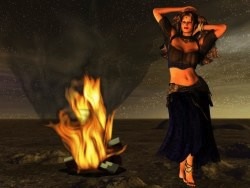
I travelled and travelled far and wide – I met happy Gypsies
I travelled and travelled far and wide – I met lucky Gypsies
Oh, Gypsies, Oh guys . . .
wherever you came from, with your tents along lucky roads
I once had a large family too, but the black legion murdered them
Come along, Gypsies of the world – For the Gypsies, roads have been opened
Now’s the time: arise, Gypsies, We will go far if we act! Oh, Gypsies. . .
• sza tele zsav (English translation)
Each trip rush ahead, to find my brother.
Find my brother, my heart, my blood is true.
Seven blood test … I was alone a lot … poor Laji, I’m going to my head.
Like the laces in my shoes, my soul trembles alone,
when the sun goes down from the sky,
Oh my God, what I’ve become, poor me what to do, sink troubles,
The big world originated, where they do not know me … nor Gadjo, no Gypsy man.
÷ ÷ ÷ ÷ ÷
![]() Follow Romani people’s amazing journey from North West India to Spain, featuring Taraf de Haïdouks, Tchavolo, Dorado Schmitt and many others . . .
Follow Romani people’s amazing journey from North West India to Spain, featuring Taraf de Haïdouks, Tchavolo, Dorado Schmitt and many others . . .
Tony Gatlif’s Latcho Drom [1993] ⇒
Within the film, the many chapters of Roma history are presented as scenes from life and states of travel in different countries. The great professionalism and relevant knowledge of the creative team is apparent from the film’s integration of languages, clothes, customs, dances and musical traditions, not to mention using lyrics to narrate historical events such as the Porrajimos (the Roma term for the Holocaust), the communist terror in Romania or the period when people were expelled from Spanish cities.
∇ Věra Bílá [1954-2019] ⇓ ‘O poštaris avel’ (1978)
+ ‘Mamo, dado’ ⇑ (1998)
Mamo dado cinen o gadoro – me tumaro, tu maro chavoro – me tu maro terno chavoro . . .
Mamo dado so kerava – kaj le chaven me mukava – mamo dado so kerava, me merav
Mamo dado cinen o gadoro – me tumaro, tu maro chavoro – me tu maro terno chavoro
. . . Hajni majni kuci tado . . .
Mamo dado so kerava – kaj le chaven me mukava – mamo dado so kerava, me merav
Mamo dado cinen o gadoro – me tumaro, tu maro chavoro – me tu maro terno chavoro . . .


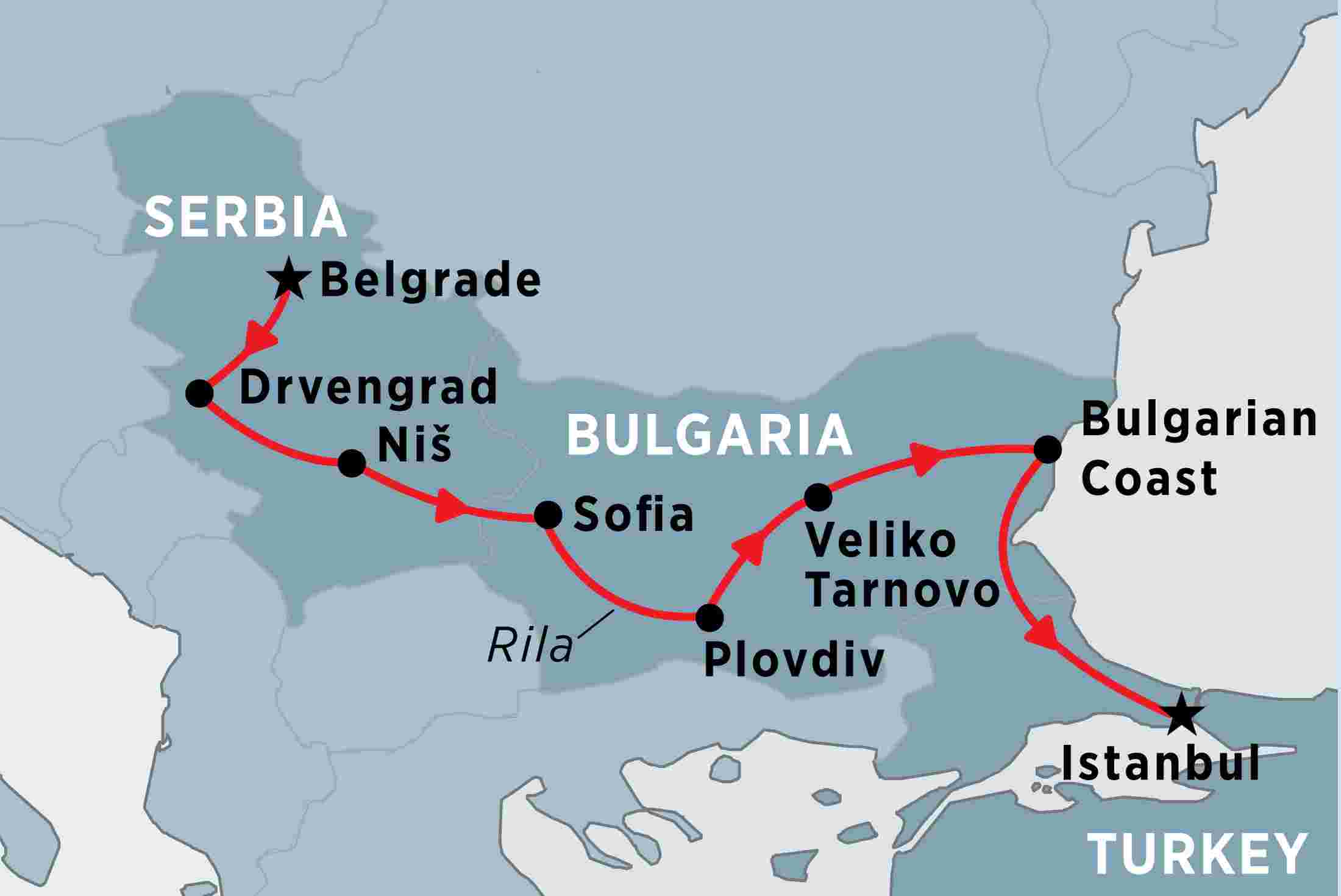


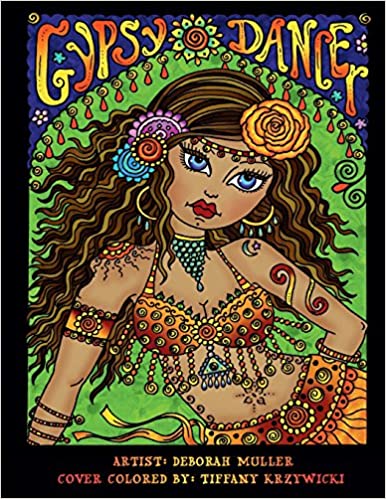

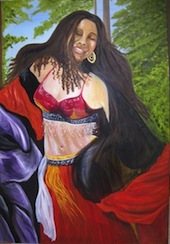
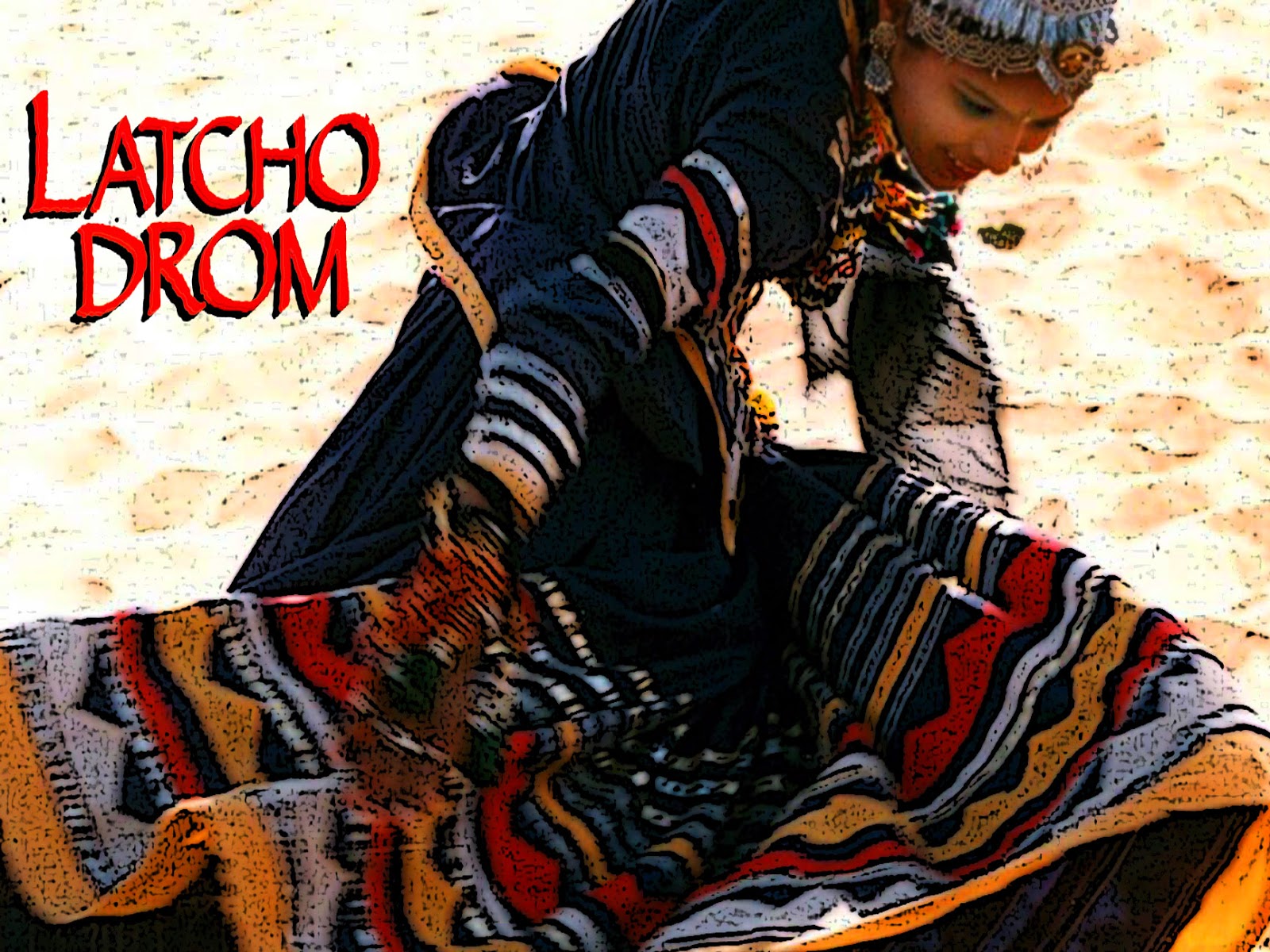
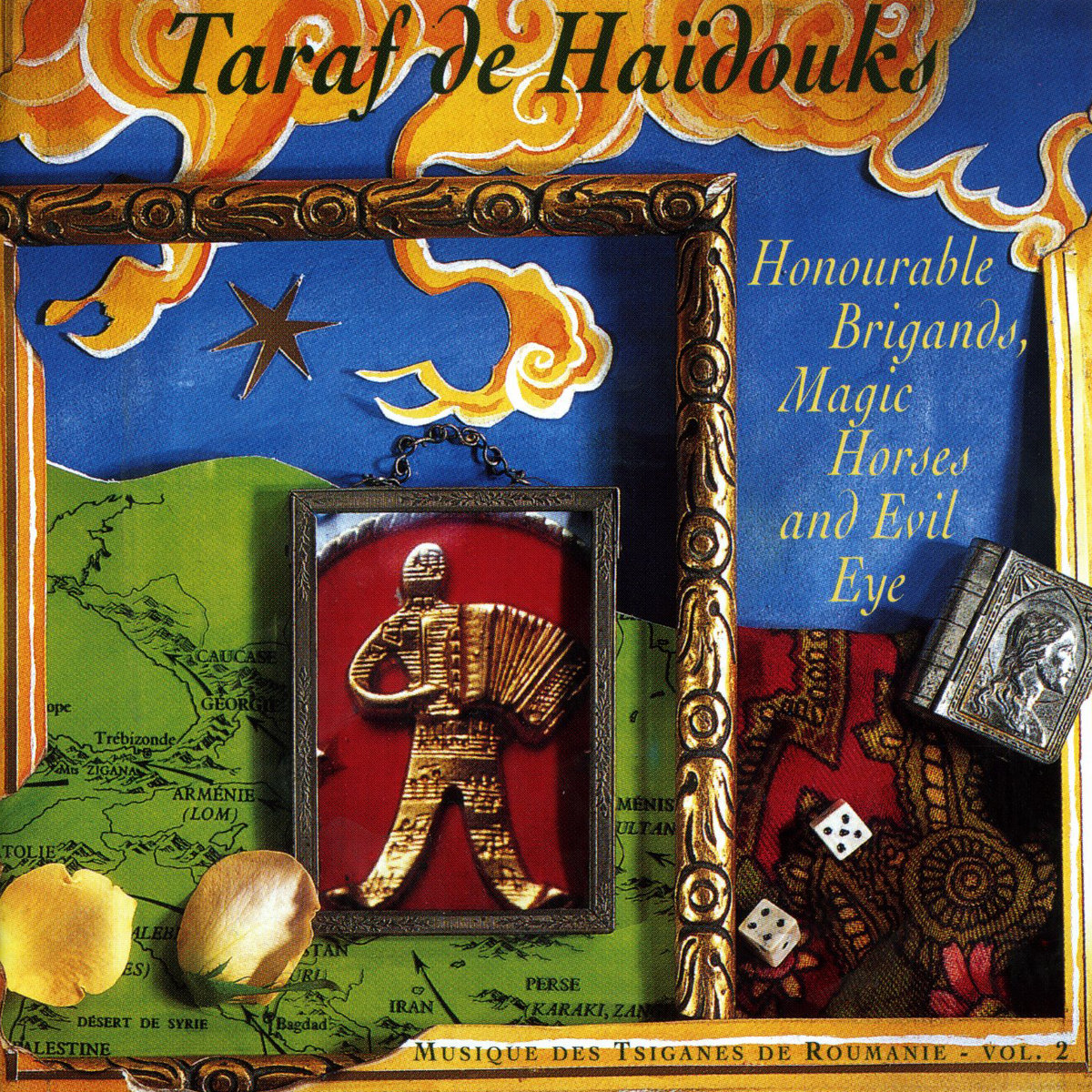
Deja un comentario